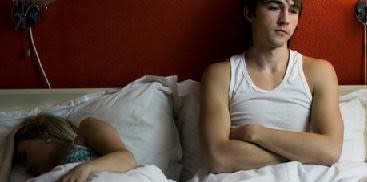Natural Herbs for Insomnia

Overview
Many people use herbal preparations as sleep aids. Although they are not usually as effective as medications prescribed for insomnia, the majority of people who use herbal sleeping aids say they are helpful. Herbs used to treat insomnia generally have fewer or gentler side effects than drugs prescribed for the same purpose.
Some herbs can help you sleep by helping to relieve anxiety, stress, or restlessness. Others work directly on the central nervous system to promote sleepiness.
Evidence
Most herbs have not undergone clinical testing, so the evidence of their effectiveness is primarily anecdotal. However, professional recommendations are generally based on information found in the German Commission E Monographs, a volume of information on the history, use, efficacy, dosage, and safety of medicinal herbs, used by physicians and laypeople around the world.
Valerian
Valerian is an herb native to Asia and Europe and grown in North America. Its mild hypnotic effect makes it one of the most successful herbal treatments available for insomnia. It is available as a tea, a tincture or extract, and as a supplement in capsule and tablet form.
Side effects associated with valerian include headaches, dizziness, and stomach ache. Some people wake up feeling tired after using valerian as a sleep aid.
The recommended dose is 2 to 3 g (1 teaspoon) of the dried roots and rhizome, several times a day.
Chamomile
Tea brewed from the flowering tops of the German chamomile plant has a long history of relieving anxiety and sleeplessness in both adults and children. It is also used as a tea to treat upset stomachs, diarrhea, and gas, and as a topical treatment for skin conditions and a rinse for mouth ulcers. Chamomile is also available in supplement form.
The recommended dose for supplements is 400 to 1,600 mg daily, in divided doses throughout the day. As a tea, 1- to 4-cups daily is the common recommendation.
Chamomile belongs to the daisy family, and may not be suitable for anyone who is allergic to plants in that family, including ragweed, marigolds, daisies, and chrysanthemums. Reported reactions to chamomile include throat swelling, skin rashes, and difficulty breathing.
Kava
Kava, sometimes called kava kava, is an herb from the South Pacific islands that has long been used to treat anxiety and promote relaxation. It is a muscle relaxant with anesthetic and sedative effects that cause drowsiness. It is used to treat stress, restlessness, and anxiety, all of which are known to adversely affect sleep. It is also used to treat urinary tract infections and asthma.
The recommended dose as a sleep aid is 180 to 210 mg (of kavalactones), one hour before bedtime.
In 2002, kava was been called into question for safety issues when it was linked to at least 25 cases of liver damage worldwide. Kava is also known to interact with alcohol and some prescription medications. Speak to your doctor before taking kava to make sure this supplement is right for you.
Aroma Therapy
Lavender-infused oils applied to the skin and sachets of chamomile and valerian in a hot bath reportedly have a calming effect on some people that may help induce sleep.
About this Author
Molly McAdams is a writer in New York City. She has been covering health and lifestyle topics for various print and online publishers since 1989. Molly has written more than 200 articles for Livestrong.com and e-how.com. McAdams has a Master of Science degree in nutrition.
